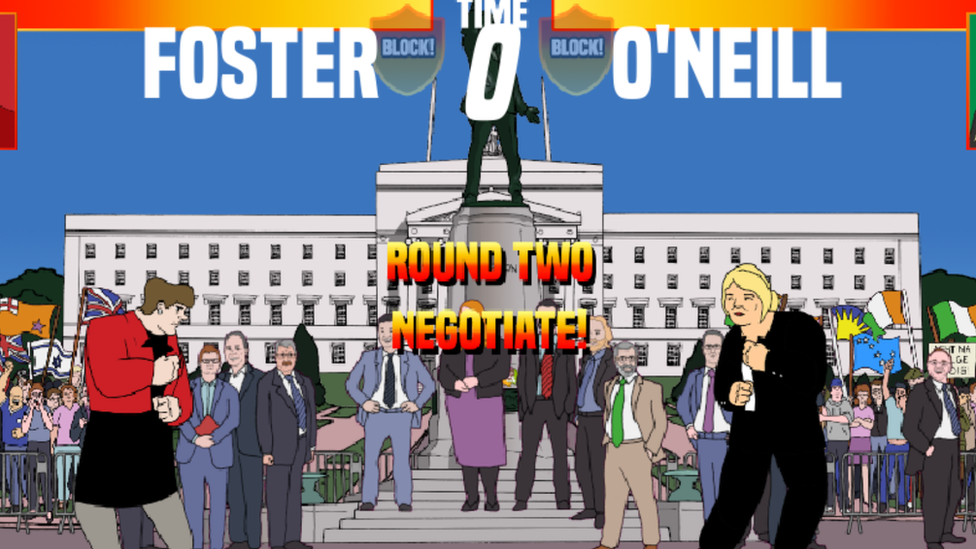Stormont reaches three years of political deadlock
- Published
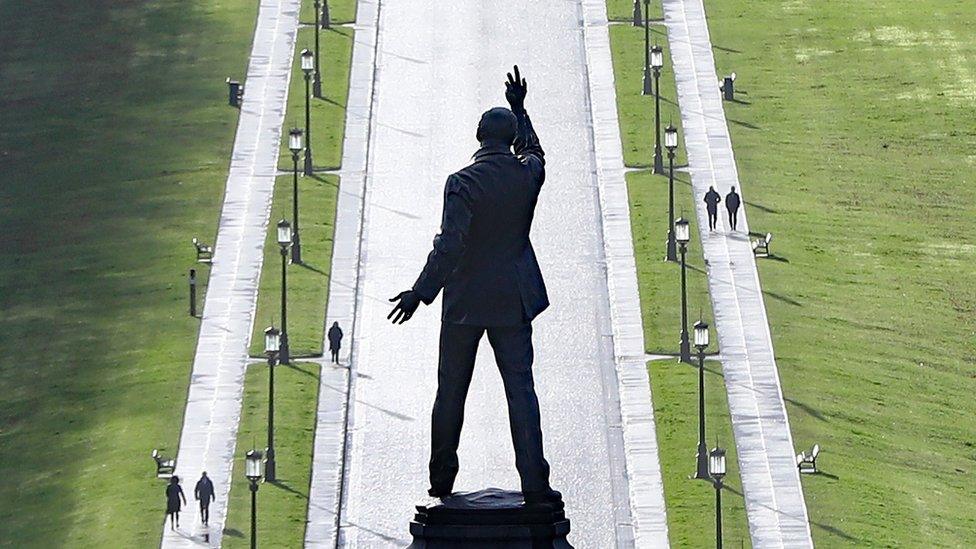
Thursday marks three years of deadlock at Stormont since the assembly and executive collapsed.
Talks aimed at getting devolved government back up and running are ongoing, but no agreement has yet been reached.
The institutions collapsed in January 2017 when the two biggest parties - the DUP and Sinn Féin - clashed over a green energy scandal.
Since then, several attempts to broker a deal have failed.
But following the general election in December, there was a renewed focus on restoring the institutions.
If no deal is reached by Monday 13 January, Northern Ireland Secretary Julian Smith may hold a fresh assembly election, in line with the law.
Before Christmas, Mr Smith blamed the DUP for the inability to secure a deal.
But the party said it was unfair to single it out and that gaps remained over proposals for reforming the assembly's controversial veto mechanism - the petition of concern - and support for an Irish language act.
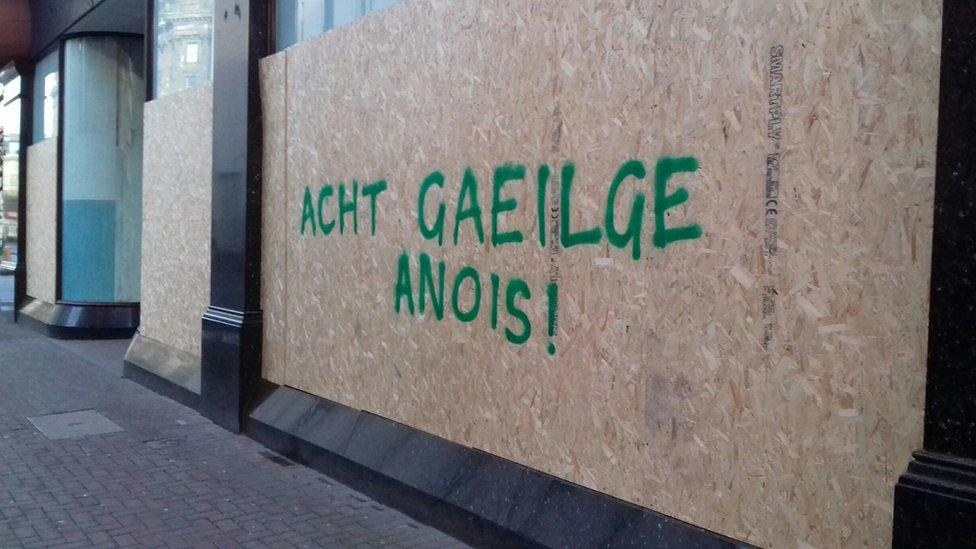
Graffiti in Belfast calling for an Irish language act, a proposal that divides the political parties
Why has devolution been suspended for so long?
Since the DUP and Sinn Féin - the two parties in government in Northern Ireland at the time - split in January 2017 the Northern Ireland Assembly has been suspended and attempts to restore it have failed.
Sinn Féin has said it would not go back into an executive with the DUP, unless legislation for an Irish language act was implemented.
The language is seen as important to the wider nationalist community, and a small number of unionists, as a symbol of identity - but in turn, it has been vigorously resisted by unionist parties.
In February 2018, it appeared a deal was about to be brokered - but it collapsed at the last moment.
So what happens next?
The parties are currently engaged in a fresh round of talks to try to break the deadlock, which began after the general election in December.
Going into the talks, unlike in previous negotiations, there was more optimism about the chances of a deal.
The DUP lost its influence at Westminster as the Conservatives won a majority in Parliament and, along with Sinn Féin, it saw its vote share drop in the general election.
While they are still the biggest Stormont parties, neither will relish another election so soon.
That being said, the negotiations are far from over and it is still a big ask to get the assembly restored soon.
Calls for an Irish language act and reform of the petition of concern have remained sticking points.
What is the petition of concern?
The veto mechanism is understood to be the biggest stumbling block to a deal.
The petition is aimed at ensuring legislation cannot pass without cross-community support, but has faced accusations of misuse in the past.
DUP MP Sir Jeffrey Donaldson said his party favoured keeping it but reforming it.
He said all parties "agree it should be retained as an important safeguard".
The SDLP, Alliance, Sinn Féin and the Ulster Unionist Party have all said they are in favour of reform.
But the issue remains exactly what sort of reform can be agreed by all of the parties.
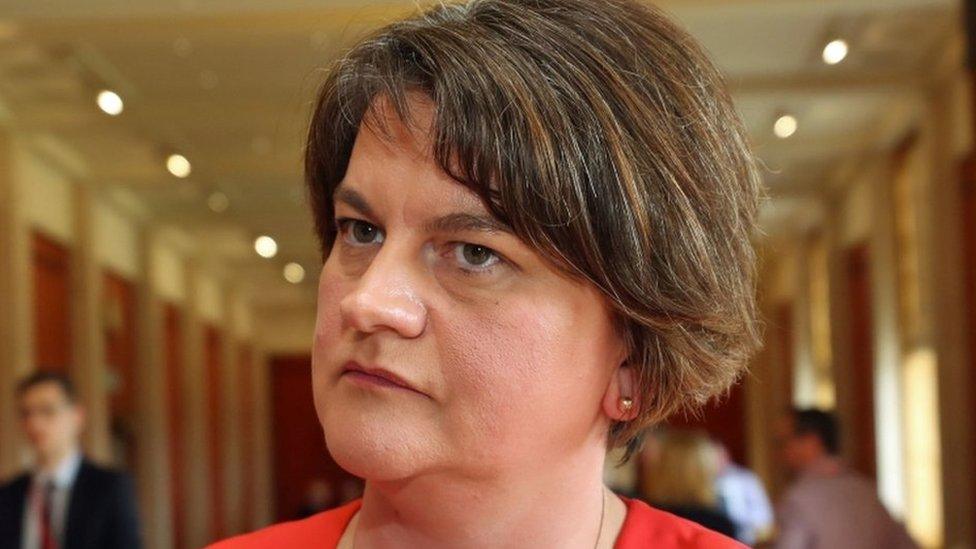
Arlene Foster said a stand-alone Irish language act was not negotiable
What is the issue with an Irish language act?
Those in favour of Irish language legislation say that it is time the language is given official recognition, protection and promotion in Northern Ireland.
On Sunday, Irish language group Conradh na Gaeilge described a meeting with Mr Smith as "productive" and that it got "a fair hearing".
The campaign group said there was no "legitimate justification for denying" Irish language legislation.
But the DUP opposes a stand-alone Irish language act.
East Londonderry MP Gregory Campbell said the language "has a perfectly acceptable place in Northern Ireland society".
Mr Campbell added: "Where there is an unacceptable demand to elevate it above all other minority languages, whether it is Sinn Féin, other parties or HM government saying we will have to yield on this issue as it is preventing devolution returning, we will not do so."
- Published23 April 2019
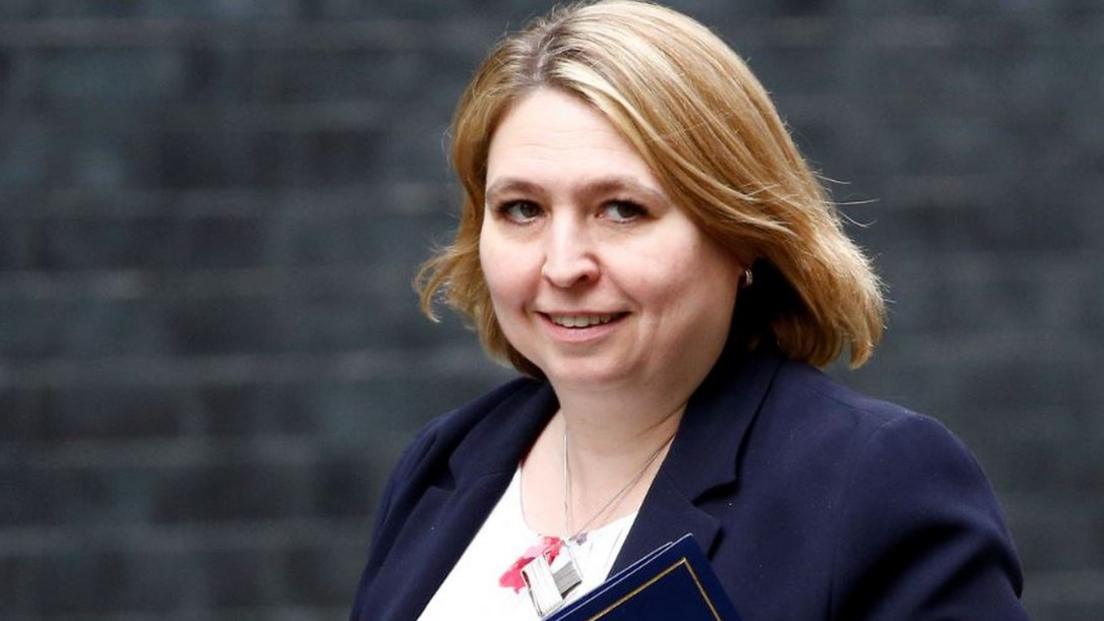
- Published22 April 2019
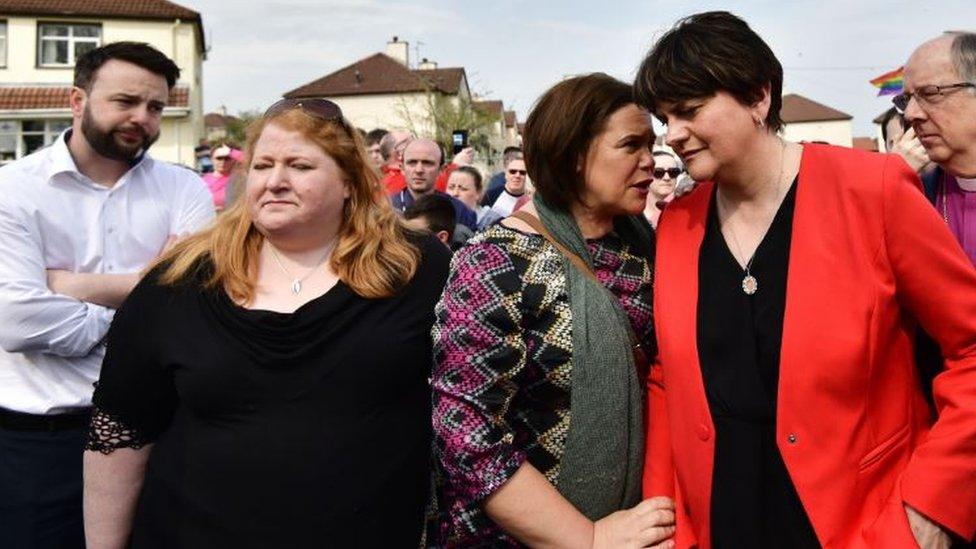
- Published11 August 2018
